Celebrating Pride Month amid a racial uprising has been impossible
OPINION: Ernest Owens explains how the Black Lives Matter movement coupled with Pride Month has created quite the dilemma as a Black queer man
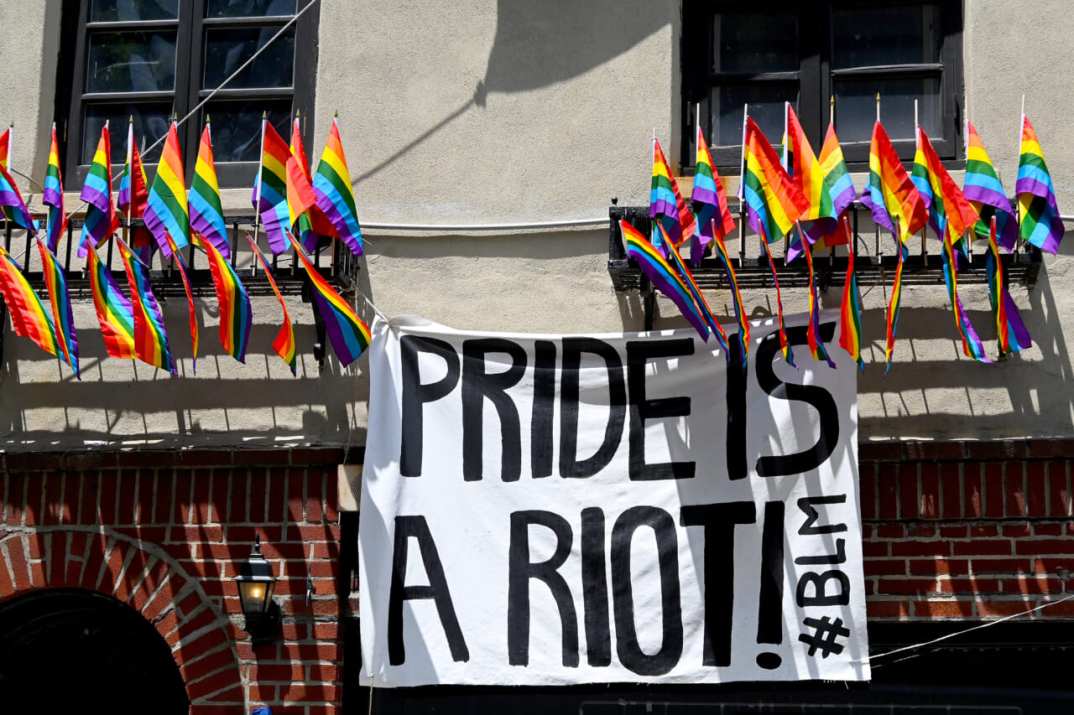
Five years ago, I had the pleasure of meeting and interviewing Jim Obergefell, the named plaintiff in the landmark Supreme Court case that led to same-sex marriage becoming the law of the land.
Obergefell, whose compassionate story of losing his partner to ALS and fighting for equal federal benefits as his spouse, had become the unexpected advocate of a movement that had been growing for decades. Watching this moment happen during Pride month made it all feel surreal.
READ MORE: NY candidates poised to become first Black gay men in Congress after primary vote
The White House had lit itself in a bold rainbow hue to celebrate the occasion and thousands began using the hashtag #LoveIsLove all over social media. I remember gay bars unapologetically throwing the day parties just because. Everything felt like it was all coming together and many within the LGBTQ community sensed the world was finally headed in the right direction.
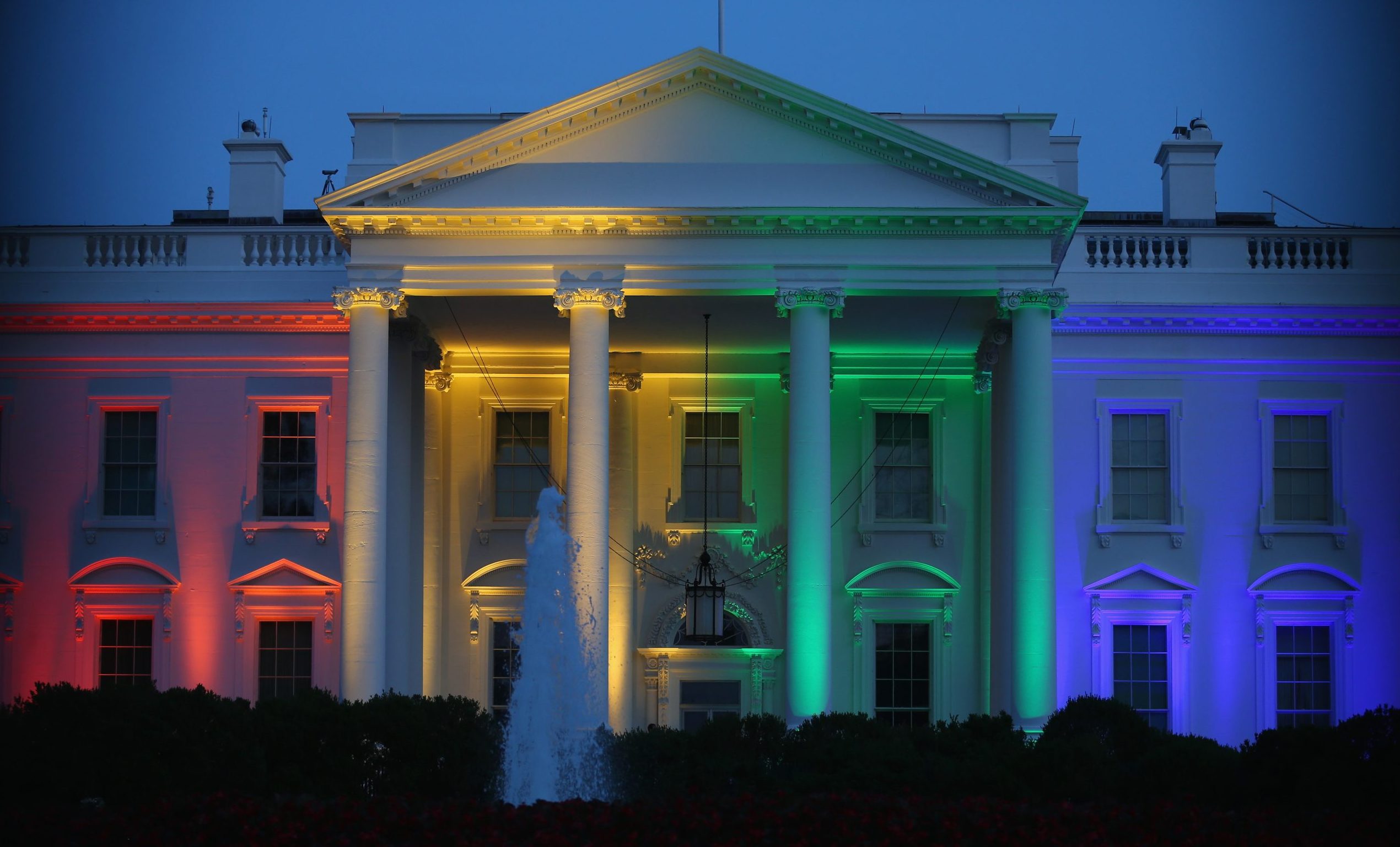
Rainbow-colored lights shine on the White House to celebrate today’s US Supreme Court ruling in favor of same-sex marriage June 26, 2015 in Washington, DC. (Photo by Mark Wilson/Getty Images)
At the time, I was 23, settling into my career as a journalist in Philadelphia, and one year into my relationship with my boyfriend, who would eventually become my fiancé.
Interviewing Obergefell as a young freelancer was one of the proudest moments of my career at the time. There was a sense that marriage equality was about to start a ripple effect for progress in the LGBTQ community. My optimism couldn’t have been higher than ever.
Today, five years later, I now feel a sense of betrayal, skepticism, and caution.
How I envisioned celebrating Pride Month as a newly engaged Black queer man in America at this moment five years ago has completely changed. What was supposed to be my Black lover and I holding hands and kissing at a Pride parade as my engagement ring gleamed in the sunlight, is now self-quarantining as we watch cities burn in the middle of a global pandemic.
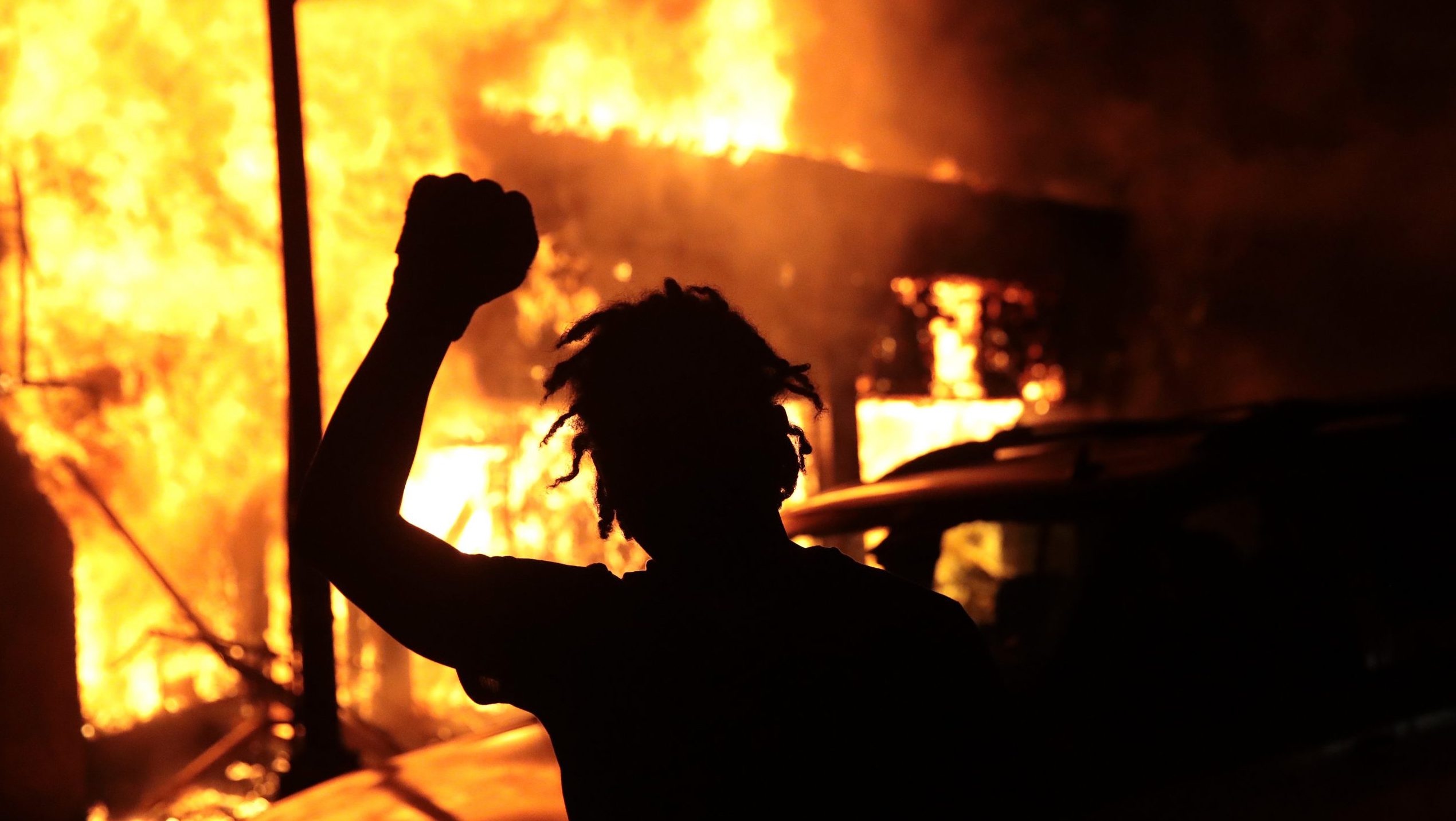
A man raises his fist in front of a burning building during protests sparked by the death of George Floyd while in police custody on May 29, 2020 in Minneapolis, Minnesota. (Photo by Scott Olson/Getty Images)
As the nation reckons with the racial injustice following the police killings of George Floyd, Breonna Taylor, Tony McDade, and several others, I am reminded of how far we still have not come in both of the communities I identify with.
Right now, America’s LGBTQ community and movement continue to be dominated by white cisgender men and women who socially, institutionally, and culturally exclude Black people from leadership, media, and representation.
Although more than 50 years ago, Black transgender women such as Marsha P. Johnson and other queer activists of color are the reason we even have a movement via the Stonewall Riots — racial discrimination and exclusion are still prominent in the fight for equality in our backyard.
In the years following Obergefell v. Hodges, I reported on more than my fair share of racism in the LGBTQ community.
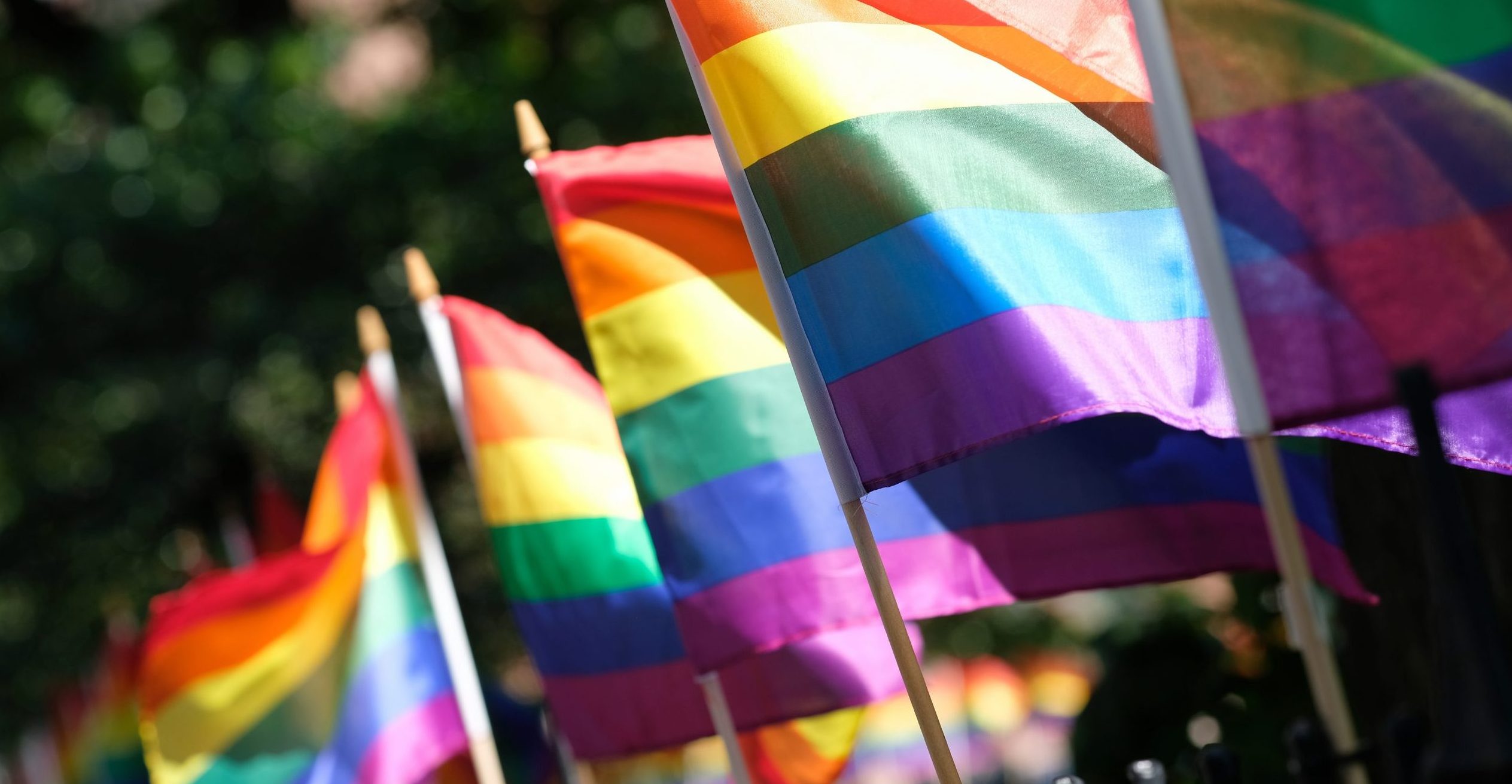
Pride Flags decorate Christopher Park on June 22, 2020 in New York City. (Photo by Dimitrios Kambouris/Getty Images,)
As marginalization persists in the LGBTQ community, I’m also saddened by the hate and bigotry that continues to permeate in the Black community as well. It’s been frustrating to have to witness other Black LGBTQ individuals declare “All Black Lives Matter” as cisgender Black straight people attempt to erase us from the very Black Lives Matter Movement that was started by Black queer women to include us all.
While there has been lots of energy and rage toward the injustice against of Black straight men, my Black community at large continues to place the advocacy for murdered Black transgender women, such as Nina Pop, Riah Milton and Dominique “Rem’Mie” Fells, as the sole responsibility of Black LGBTQ people.
READ MORE: Iyanna Dior’s beating proves Black lives still don’t matter if you’re trans
All of this right now has made this month a devastating blow for people like myself who have shown up for both of these communities unyieldingly and still feel othered. I can’t dismiss my queerness, like I could never dismiss my Blackness. Racism and homophobia cuts at the center of my very existence not only by the white supremacists who want to kill us all — but by the very diverse individuals who have allowed this hate to co-opt our movements.
Which is why I have joined the countless other Black queer and trans activists and community leaders in reminding people that this very violent erasure isn’t the movement I will continue to defend.
The founders of Black Lives Matter intended for this movement to be intersectional, a term that was created by Dr. Kimberlé Williams Crenshaw. Her theoretical framework helped acknowledge that the various marginalized identities that one simultaneously lives create a greater level of oppression beyond just one experience alone.
Alicia Garza, Patrisse Cullors, Opal Tometi understood this when they founded Black Lives Matter in 2013. It’s high time that many of us who aren’t just Black and LGBTQ remind those within our community that any fight for Black lives that isn’t intersectional isn’t the kind of activism we should endorse.
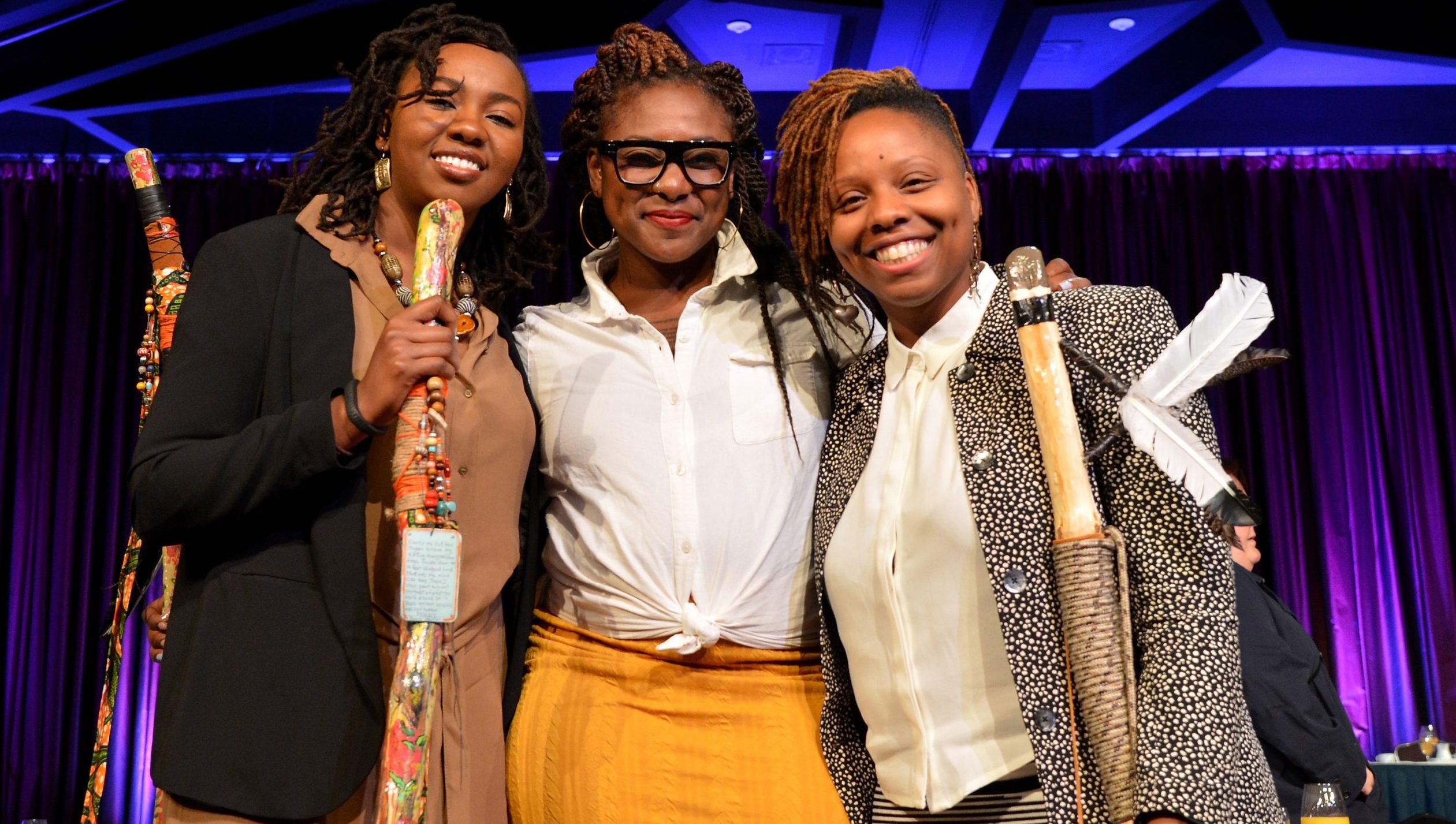
CWB honorees and co-founders of #BlackLivesMatter, Opal Tometi, Alicia Garza and Patrisse Cullors appear onstage during The New York Women’s Foundation Celebrating Women Breakfast at Marriott Marquis Hotel on May 14, 2015 in New York City. (Photo by Slaven Vlasic/Getty Images fot The New York Women’s Foundation)
The same goes for my fellow white LGBTQ members who continue to treat diversity and inclusion as a second thought when the founders of our liberation movement embraced it. The anti-Blackness within our queer media, nonprofit leadership, businesses, and advocacy is counterintuitive to what pioneers like Marsha P. Johnson, Sylvia Rivera, and even Harvey Milk, stood for.
Ceasing the erasure and long-standing bigotry that’s distracted the activism is long overdue. Black lives must matter within this fight for LGBTQ equality or else love truly isn’t love.
The only ounce of hope I’ve felt during Pride Month sent me right back to where I was five years ago: the Supreme Court. After decades of ongoing legal battles, the highest court in America finally ruled against anti-LGBTQ employee discrimination. Meaning that many queer couples like mine who plan to have a Saturday wedding, no longer have to fear job termination when they post the pictures on their desk on Monday.
If anything, what this proves to me is that institutional change is starting to meet the demands of the movement as intersectional adjustments have yet to be instituted. Hopefully, I don’t have to wait another five years to see Black LGBTQ people reclaim the movements they’ve been spearheading since the very beginning.
 Ernest Owens is the Writer at Large of Philadelphia magazine and CEO of Ernest Media Empire, LLC. The award-winning journalist has written for The New York Times, NBC News, USA Today and several other major publications. Follow him on Facebook, Twitter, or Instagram and ernestowens.com.
Ernest Owens is the Writer at Large of Philadelphia magazine and CEO of Ernest Media Empire, LLC. The award-winning journalist has written for The New York Times, NBC News, USA Today and several other major publications. Follow him on Facebook, Twitter, or Instagram and ernestowens.com.
https://open.spotify.com/episode/6buxwQax07vR9Y740tPa7x
